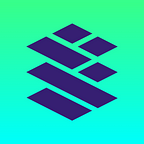October 2022: Tech Status Update
Updates on the development of the payment scheduling tool, staking rewards, Cardstack Wallet & Cardstack Framework
Here at Cardstack, we continue to make improvements and add new features to our product suite. In this month’s update, we cover the changes made to our payment scheduling tool, staking rewards, Cardstack Wallet, and the Cardstack Framework.
Payment Scheduling Tool
Last month, we completed the initial smart contract development for the payment scheduling tool. We are working on the first module that will allow users to pre-sign token transfers, after which our automated system, called Crank, will submit the transaction on the scheduled payment date. We have completed the command-line program that exercises the payment scheduling routine and have done end-to-end testing against a testnet.
We are currently working on the user interface to allow users who are not developers to use the tool.
We plan to deploy this payment scheduling tool on multiple chains simultaneously as our first multi-chain protocol activity that meets the users where they are. We will announce the exact chains we will support as we get closer to product release.
On completion, the scheduling tool will allow you to pay your globally dispersed teams, vendors, and freelancers in crypto!
Staking Rewards
We continue to refine our model for reward distribution and are currently working on explainability, which will allow users to understand why they are receiving a certain reward in their wallet. Calculations for rewards are done using off-chain analytics and computation, and the results are delivered using a mix of on-chain and off-chain verification called a Merkle Proof. The rewards will be calculated based on funds held in the user’s Cardstack Wallet — with both the amount and the duration being considered — as well as user activity.
The explainability system allows our analytic processing module to capture key parameters and share them with users when they receive a reward, allowing users to have visibility into how their rewards are calculated. We are building this explainability system based on a globalized approach to support the translation of explanations into various local languages, while maintaining the same calculation and units of those values under the hood.
As we move on to more complex algorithms — for example, for calculating commissions and payment splits — the explainability system will play a key role in providing context for aggregate transactions that may contain many rewards earned for different activities, but with one wallet. This allows us to improve the usability for end users looking to claim their rewards or revenue on a rollover basis, where unclaimed rewards are accumulated until they are finally redeemed.
Cardstack Wallet
On the wallet front, our team is improving the private key management module, while moving towards supporting multisig transactions for safes that are controlled by more than one party. Currently, the safes in the wallet are limited to one user. As the next step, we are working to extend the wallet to support transactions involving safes owned by multiple users that require more than one private key to authorize a transaction.
We believe that multisig support at the wallet level will help coordinate time-sensitive business workflows — including approvals, settlements, and payments — while leveraging the security of multiple devices with multiple private keys managed securely through our own wallet or another wallet supporting the Gnosis Safe protocol.
Cardstack Framework
We are making a lot of progress on the Cardstack Framework, with a focus on porting our server side query system — especially for supporting cross-card relationships — to the browser-only runtime environment. This capability allows us to link cards created and authored by different people into a cohesive document, without causing duplication problems when information like addresses and invoice details are replicated across organizations.
By using our linking mechanism, we can proactively synchronize changes across organization boundaries, while maintaining an extremely fast query time for accessing information that has already been identified and properly referenced within a local realm. This system will be key for establishing various catalogs and registries where community members can submit their cards to become templates that other Cardstack users can leverage. Other users can use the same data by linking to it, so that they don’t have to replicate this information manually; instead, they can rely on our referencing system to perform the necessary synchronization and invalidation, as data evolves on different timelines during the course of collaboration and work.
To get all our latest updates, sign up for our newsletter on cardstack.com, star Cardstack on GitHub, and join our Discord channel or our Telegram group and announcement channel.
